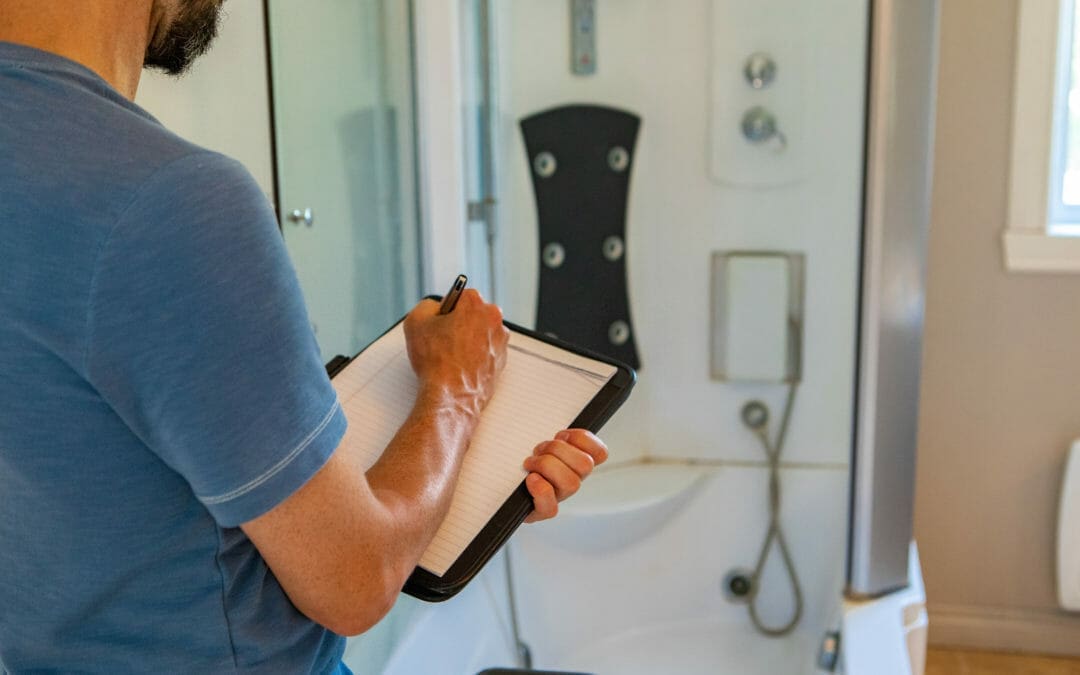Any electrical equipment that has the potential to cause injury must be maintained and kept in a safe condition. In fact, as of July 2020, it is a legal requirement for rental property landlords to get a registered professional’s electrical testing at least every five years to prevent this.
Electrical checks for landlords are essential to ensure they are proactively protecting their tenants and themself. But what can you expect from these electrical checks for landlords?
What does this electrical test involve?
The domestic electrical checks for landlords should include inspections on the wiring, plug sockets, light fittings, fuse box, showers and extractor fans of the premises. It also requires that smoke alarms must be fitted on each floor of the property.
Similar to an MOT for your car, the inspection covers a vast defined list of over 70 items, but some of the main points include:
- Connections are secure and not taut
- Accessories are wired correctly
- Checks for any damage
- Circuits are correctly labelled, including warning labels present
- Cables are correctly fused
- Cables are covered properly in their housings
The PTS Compliance team are full of qualified engineers. As a proud members of the NICEIC and ECA, we are committed to performing electrical checks for landlords, giving you and your tenants peace of mind about the property’s safety. In addition to the normal accreditations PTS Compliance have also been assessed and certified to complete domestic EICR’s in the private rented sector.
This electrical check for landlords covers just the fixed electrical installations in the property, and it is not required for you to have the items that can be moved around, such as your white goods, kitchen appliances and TVs. If you’re also interested in getting those reviewed, it’s worth asking a provider for a portable appliance test (PAT).
You must inform your tenants when an electrical test has been booked so they can expect the arrival of an engineer and make arrangements as it could be disruptive to their everyday living activities.
The electrician will make any immediate hazards safe before they leave the premises. You won’t receive a certificate to provide proof of your compliance to any authorities, but the electrical engineer conducting the test will provide you with an EICR report of the findings within four weeks. This report will include:
- The results of the inspection and test (satisfactory or unsatisfactory)
- If applicable, a list of observations requiring remedial work or further investigation
- The date the next inspection and test are due by
The electrician may write some codes on the report, which refer to the below
FI – Further investigation is needed.
C1 – Dangerous installation. Not suitable for continued use. Repairs needed.
C2 – Potentially dangerous installation. Not suitable for continued use. Repairs needed.
C3 – Improvements are recommended but not required. (Passed)
Any needed work that is concluded by the review will then need to be completed within 28 days. Tenants should also expect to see a copy of this report to see the safety electrical checks carried out.
Are electrical checks for landlords required?
Hopefully, the majority of landlords are already checking their electrical installations regularly to provide their tenants with the safest home possible.
While these checks are a good gesture, unfortunately, the new regulations enforce the need for an official electrical testing certificate, so a manual check that is done yourself will not suffice.
These regulations apply to all private landlords to ensure the accommodation for tenants is not hazardous and to a good standard when it comes to electrical safety. The only exemption is in a lodger agreement where the renter and landlord share the same accommodation. A landlord proven to be breaching these rules could see a fine of up to £30,000.
These changes came into effect to protect tenants as a number of landlords were providing hazardous accommodation when it comes to electrical safety. This now ensures there is an electrical safety standard to uphold and reduces irresponsible, dangerous lets.
If you are a new landlord, you should note that you should do the first electrical check before the tenant moves in, and they require a copy of the report within four weeks.
How often do Landlords need to renew their EICR?
The regulations state that an electrical safety certificate will be valid for 5 years unless the inspectors deems it necessary to reduce that time frame. This means that you should only require an EICR to be completed every 5 years. There are alot of companies stating that the report is valid for ‘5 years or change of tenancy.’ This is incorrect as the regulation requires the testing to be performed at regular intervals rather than when a tenant is changed.
PTS Compliance are specialists in safety services and electrical checks for landlords – testing to BS7671 standards. If you’re a landlord looking to have your let tested, get in touch so we can help to protect you in legal proceedings, providing comfort to yourself and your tenants.
